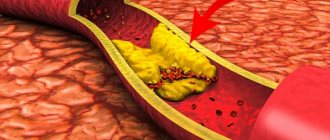Ear congestion is a very unpleasant condition, not only causing a person to feel insecure and irritated, but also indicating an existing, in some cases, threat to his health.
This condition may be due to some objective reasons, for example, flying in an airplane or a sharp descent from a hill in a car, and in this case it can be ignored. You can quickly get rid of this uncomfortable condition using well-known methods - swallowing saliva, sucking on lollipops, simulating the process of yawning, etc. helps. If your ears are blocked “just like that,” and it happens regularly and is accompanied by pain, dizziness or other unpleasant symptoms, you should not ignore these signals from the body, but consult a doctor to check your health and make a diagnosis.
In any case, blocked ears are an unpleasant condition that interferes with a person’s full life. This is not only an irritating factor, but also reduced Hearing, which is already a serious problem, since with the help of this sense we receive a significant amount of information.
Separately, we note congestion in the ears, which occurs due to water getting into them as a result of swimming in open and closed reservoirs. As a rule, this does not pose a danger and the water “plug” flows out quite quickly, and hearing is restored. Unfortunately, there are cases, especially when swimming in the sea or lake, when small grains of sand, pebbles and other objects get into the ear canal along with water, which can seriously harm and cause inflammation. In addition, improper bathing can lead to otitis media and perforation of the eardrum.
Causes of ear congestion
In addition to swelling caused by a cold, ears can become blocked due to some physical reasons:
- Pressure changes when flying on an airplane, riding in an elevator, riding on attractions;
- Getting water into the ear canal while swimming or diving;
- Rhinosinusopathy due to hormonal imbalance during pregnancy.
Also, conditions such as cerumen plug, deformation of the nasal septum, foreign body in the ear, hypertension, taking medications, osteochondrosis, etc. can be the causes of ear congestion.
Diagnosis and treatment of congestion
Since the cause of its occurrence may be any of the factors listed above, treatment in each specific case will require a special approach, procedures, techniques and drugs. It is impossible to make a diagnosis on your own, without a thorough examination in a medical clinic and consultation with a doctor, and without knowing the diagnosis, treatment is simply dangerous. Do not forget that regular ear congestion, especially in combination with pain, is a reason to immediately seek medical help, and not experiment with “proven remedies.”
Depending on the results of the medical history and initial examination of the patient, he may be offered tests and prescribed various research methods to clarify the diagnosis, including MRI and computed tomography. Only after the cause of ear congestion is known, the doctor will be able to develop the right strategy to combat this condition and prescribe the necessary procedures and medications.
The reception is conducted by specialists
Kirillov Evgeniy Sergeevich
Audiologist
Cost of services
Initial consultation with an audiologist
1200₽
Repeated consultation with an audiologist
1000₽
Symptoms of ear congestion
When the ear is blocked, a person’s well-being does not change, but he begins to perceive his own voice differently, external sounds seem muffled, and sudden changes in body position may be accompanied by dizziness and nausea.
If the sound is not perceived in full due to a mechanical obstacle, accumulation of sulfur, narrowing of the ear canal, etc., additional symptoms will be the same as when water gets in.
More complex problems associated with the spine and increased blood pressure can provoke:
- Noise and ringing in the ears;
- Feeling of heaviness in the head;
- Headaches and dizziness.
With Meniere's syndrome and otosclerosis, hearing decreases gradually.
Vestibular disorders (dizziness, tinnitus)
Vestibular disorders (dizziness, tinnitus)
The vestibular system originates in the inner ear - in the vestibule and semicircular canals (these structures are also called the vestibular apparatus), the rest of its upstream structures are located in various parts of the brain.
In this regard, vestibular disorders associated with diseases of the inner ear and vestibular nerve are distinguished (they are mainly treated by otorhinolaryngologists), and vestibular disorders associated with damage to parts of the vestibular analyzer located in the brain (they are treated by neurologists) .
Dizziness and imbalance caused by inner ear and vestibular nerve disease:
Meniere's disease (synonym: chronic relapsing labyrinthopathy) is a chronic disease caused by a periodic increase in intralabyrinthine pressure (or labyrinthine hydrops). The cause of hydrops is the excessive production of endolymph intralabyrinth fluid, disruption of its circulation and reabsorption. It occurs in the form of repeated attacks of dizziness with a sensation of movement of surrounding objects or the person himself (in English literature - “vertigo”), nausea and hearing impairment (usually on one side). Attacks can last from several hours to days.
Acute labyrinthopathy of vascular origin is a sudden decrease in hearing in one ear with severe dizziness with a sensation of movement of surrounding objects (vertigo), most often caused by an acute disturbance of blood circulation in the inner ear.
Chronic purulent otitis is a chronic inflammatory process in the tympanic cavity, characterized by the presence of perforation of the eardrum, suppuration and hearing loss. The inflammatory process can be accompanied not only by hearing loss, but also by dizziness and imbalance. Without treatment, there is a risk of developing labyrinthitis (acute inflammation in the inner ear) and intracranial complications.
Perilymphatic fistula is a pathological communication between the inner and middle ear due to damage to the membranes located between them, accompanied by the leakage of inner ear fluid, perilymph, into the middle ear. Occurs as a result of ear injury, barotrauma (during a change in atmospheric pressure), and other reasons. Accompanied by dizziness and unilateral hearing loss.
Benign paroxysmal positional vertigo, BPPV (synonym - otolithiasis) is a condition in which fragments of the otolithic membrane (calcium carbonate crystals), usually located in the vestibule of the labyrinth, due to injury, age-related changes, and other reasons, leave their location and end up in one of the semicircular canals (or in several semicircular canals). The displacement of detached otoliths that occurs at certain head positions and tilts causes attacks of short-term dizziness. Depending on the location of the detached otoliths, cupulo- and canalolithiasis are distinguished.
Vestibular neuronitis is an acute inflammation of the vestibular portion of the vestibulocochlear nerve and its vestibular ganglion, most likely of viral herpetic etiology. During the first 3-7 days, it manifests itself as acute vestibular syndrome - severe dizziness with a feeling of rotation of surrounding objects (vertigo), imbalance, nausea, followed by subsidence of symptoms within 2-4 weeks.
Acoustic neuroma (synonyms - neuroma of the statoacoustic nerve, vestibular schwannoma) is a benign formation of the statoacoustic nerve, causing unilateral hearing loss, often tinnitus, dizziness and imbalance. Without surgical treatment, neuroma growth causes compression of various brain structures and can lead to the development of life-threatening conditions.
Motion sickness (synonyms - motion sickness, kinetosis) is a complex of symptoms in the form of nausea, increased salivation, malaise, provoked in some people by riding in transport (in a bus, car, plane, at sea), or riding on attractions. Caused by the development of vestibular-vegetative symptoms, primarily in the form of nausea, in response to irritation of the vestibular apparatus in the above conditions.
Dizziness and imbalance caused by diseases of the brain and central nervous system:
- Acute and chronic cerebrovascular accidents.
- Post-traumatic brain lesions.
- Consequences of previous intoxications and infections of the central nervous system (meningitis, encephalitis).
- Demyelinating diseases of the central nervous system (multiple sclerosis, etc.).
- Brain tumors.
- Osteochondrosis of the cervical spine.
When to go to the ENT doctor?
Constant ear congestion, even without pain, is a cause for concern. Treatment must be directed at the cause, which may be very serious. In severe cases, the patient may require surgery.
It is necessary to consult a doctor in cases where the feeling of congestion does not go away for a long time, the body temperature rises, there is pain and dizziness, any fluids are discharged from the ear, if the hearing loss was preceded by an injury or serious illness.
Blocked ears: disease or just a plug
Periodically, the ears become clogged due to the formation of wax plugs, as well as against the background of colds and other acute respiratory viral infections, accompanied by inflammatory processes. As a rule, congestion itself is not a disease and does not pose a health risk. But in some cases it is necessary to consult a doctor and undergo an examination:
- the cold goes away, but congestion does not;
- congestion has persisted for several days and is accompanied by pain;
- hearing acuity decreases;
- discharge appears from the ear with or without pus;
- Along with congestion, dizziness appeared.
If at least one of the described symptoms appears, you should not self-medicate. This can lead to further development of the disease, which will complicate the recovery process.
Read also
Hearing loss
Hearing loss is an impairment in the perception of environmental sounds.
In most cases, this disorder occurs gradually, patients do not immediately understand what is happening and thus not always in a timely manner... Read more
Vasomotor rhinitis
The concept of vasomotor rhinitis Vasomotor rhinitis is an inflammatory process in the nasal cavity. Irritants or allergens can cause this inflammation. Sometimes there are cases when there is no specific reason...
More details
Sore throat
A sore throat is a pain, scratching, or irritation in the throat that gets worse when you swallow. The most common cause of this disease is viruses, namely colds (ARVI) or...
More details
Chronic laryngitis
Understanding Chronic Laryngitis Chronic laryngitis occurs when the larynx and its vocal cords become inflamed, swollen and irritated due to prolonged exposure to external factors. It's quite...
More details
Angina
When it comes to a sore throat, the first thing that comes to mind is a sore throat. However, let's figure out whether this is really so, what kind of disease it is and why all doctors recommend being so careful about it. Angina…
More details
Why do you need to start treating the symptoms of auditory neuritis as early as possible?
The success of treating the disease directly depends on how quickly it is started. If the patient goes to the clinic on time, the chances of hearing restoration will be best. With chronic neuritis, there is no longer any talk of recovery - the doctor’s efforts are often focused only on preventing deterioration. The only way to at least partially restore hearing is to install a cochlear implant - a device that perceives sound vibrations through a microphone and transmits them in the form of electrical impulses to the brain.
Consultation with a pediatrician in Saratov
Congestion in a child's ears may indicate the presence of a particular disease. To determine what exactly is happening to your child and exclude (or confirm) the presence of a particular pathology, you need to seek advice from a specialist. First of all, you need to make an appointment with your child to see a pediatrician.
The First Children's Medical Center offers assistance from highly qualified doctors working with children of all ages. Our Center provides everything for the comfort of children and parents. If you cannot visit a pediatrician (Saratov is not your city, and you cannot get to the Center) in person, then you can sign up for an online consultation with one of our specialists.
You can make an appointment for a consultation from 8.00 to 20.00 by calling (8452) 244-000. Reception is by appointment only.
Eustachite
In medicine, a broad understanding of this condition is used as inflammation of the middle ear. It must be said that the primary symptoms of the disease arise due to inflammation of the Eustachian tube. The close connection of this canal with the middle ear contributes to the further spread of the pathological process. In addition, during the acute phase of the disease, the mucous membrane of the Eustachian tube swells, resulting in a narrowing of its lumen, against which the internal pressure of the tympanic cavity decreases and a feeling of congestion appears.
Deviated nasal septum
This disease can occur at any age and provoke the development of many other unpleasant symptoms. So, in a normal situation, air circulates freely in the maxillary sinuses and other nasal cavities, preventing the proliferation of pathogenic flora. When the nasal septum is deviated, the supply of oxygen is limited, which promotes the proliferation of pathogenic microorganisms in these areas. Over time, the inflammatory process spreads to the nasopharynx, which leads to a decrease in hearing acuity.
Colds
If the upper respiratory tract is affected by the inflammatory process, swelling of the nasal and pharyngeal mucosa occurs. As a result, the entrance to the auditory tube is blocked, which can impair the ventilation of the ear cavities. Symptoms of congestion due to a runny nose or cold appear especially intense in the morning after sleep. In this case, no pathological changes occur in the ear canals, and the decrease in hearing acuity is temporary and, as a rule, resolves after the symptoms of a cold subside.
What to do if your ear is blocked
Episodic manifestations of this kind of unpleasant symptoms, as a rule, do not cause concern for the patient’s health. In this situation, doctors recommend regularly cleaning the ear canal with ear sticks and promptly treating diseases of the upper respiratory tract. In case signs of congestion appear after swimming, tilt your head several times in the appropriate direction. Due to the pressure difference, the remaining liquid will come out and the unpleasant symptoms will disappear.
If there is severe itching due to the presence of wax plugs, experts advise dripping a few drops of peroxide or warm olive oil into the ear canal. Remember that introducing any substances into the ear canal in order to eliminate pathological (purulent) discharge is strictly prohibited. Conditions of this kind require immediate contact with a specialist who will examine the ears and prescribe adequate treatment for the resulting syndrome.
Neurological diseases
This group of syndromes is a common cause of decreased visual acuity. Therefore, if your ears are blocked, you should pay attention to the state of the nervous system. Thus, the main diseases that can cause disruption of the functioning of the hearing aid are vegetative-vascular dystonia and osteochondrosis of the cervical spine. It is worth saying that the clinical picture of these syndromes is often accompanied by headaches and darkening of the eyes.
The mechanism of ear congestion in neurological diseases has not been sufficiently studied. However, it is assumed that the main reason for the development of this and many other symptoms is a violation of the blood supply to the nerves innervating the components of the auditory analyzer. Congestion in this situation can be eliminated only by getting rid of the primary disease.
Allergic rhinitis
This condition occurs especially often in childhood. The child’s immunity is highly sensitive to various types of allergens: pollen, food products, and medications. In a situation where a foreign protein structure enters the body through the upper respiratory tract, it settles on the mucous membrane of the nasopharynx, causing inflammation and swelling of the surrounding tissues.
These pathological changes lead to the development of allergic rhinitis with copious mucus discharge from the nose (severe runny nose), lacrimation, severe difficulty breathing and other unpleasant symptoms. In addition, against the background of swelling of the nasopharynx, the appearance of symptoms of ear congestion is noted due to the blocking of the entrance of the auditory tubes by hyperplastic tissues.
Diagnosis of acoustic neuritis in the doctor's office
The diagnosis and treatment of the disease is carried out by ENT doctors and neurologists. During the conversation, the doctor may ask you the following questions:
- When did you notice that your hearing was getting worse? How exactly did this manifest itself?
- Are you bothered by ringing or tinnitus?
- What preceded the onset of symptoms? Have you had any infections? Have you had a head injury?
- Did your close relatives suffer from similar disorders?
- Are you worried about dizziness or nausea?
- Does hearing loss worsen over time?









